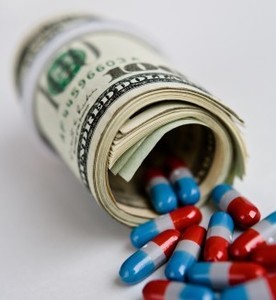Attempts by US Congress to halt the rise in generics prices with new rebates payable by drugmakers has received a stinging rebuff from the Generic Pharmaceutical Association (GPhA).
Proposed rebates will hit patients, not drug companies
Generics/General
|
Posted 27/11/2015
 1
Post your comment
1
Post your comment

‘Today’s House proposal seeks in part to balance the budget on the backs of America’s vulnerable Medicaid population, and will reduce patient access to affordable generic medicines,’ said GPhA president Mr Chip Davis.
Under the new House proposal, generics makers would be required under the Medicaid Drug Rebate Program to pay higher rebates if generics prices rise too quickly [2].
‘This is especially disappointing when there exists an alternative bipartisan solution that would provide billions in savings to the healthcare system, and that would not compromise patients’ access to the medicines they need,’ said Mr Davis.
The new penalty for generics price increases are extra rebates that generics manufacturers would have to pay if the price of a generic drug for a given quarter outpaces the inflation-adjusted baseline Average Manufacturer Price (AMP) [1].
The GPhA is incensed, ‘Policymakers who are serious about keeping prescription drugs affordable for Americans should reject the provisions in today’s budget proposal dealing with Medicaid rebates that could eviscerate already strained state budgets and limit patient access to lower-cost generics,’ said Mr Davis.
The best way to maximize drug cost savings, he says, is to increase access to and use of affordable medicines, not to increase rebates. ‘Congress should pass the Fair Access for Safe and Timely (FAST) Generics Act, introduced by Reps Steve Stivers and Peter Welch,’ said Mr Davis. This would close regulatory loopholes used by some brand drug manufacturers to block generics competition without lowering safety standards, he says.
The FAST Generics Act was reintroduced on 18 June 2015 and includes common sense reforms to close loopholes such as the abuse of risk evaluation and mitigation strategy (REMS) and non-REMS restricted access programmes. Thus, ensuring consumers have faster access to less costly generics by increasing market competition and eliminating bureaucratic red tape [2].
A report from the US Department of Health and Human Services (HHS) in 2007 found that generics price increases exceeded the statutory inflation factor applicable to brand-name drugs for 35% of the quarterly AMPs between 1991 and 2004.
‘If the provision for brand-name drugs were extended to generic drugs, the Medicaid program would receive additional rebates … we calculated that the Medicaid program would have received a total of US$966 million in additional rebates for the top 200 generic drugs, ranked by Medicaid reimbursement, from 1991 through 2004,’ the report concluded.
More recent data tell a different story, says GPhA’s Mr Davis. ‘Generic medicines saved the United States healthcare system nearly US$1.5 trillion over the past 10 years, including US$239 billion in savings in 2013 alone,’ said Mr Davis. ‘This budget deal will make it harder for generics to get to the market, meaning that for some patients the only option that will remain are high cost branded products.’
Related article
Soaring generics prices come under increased scrutiny
References
1. GaBI Online - Generics and Biosimilars Initiative. Generics makers to be penalized for huge price hikes [www.gabionline.net]. Mol, Belgium: Pro Pharma Communications International; [cited 2015 Nov 27]. Available from: www.gabionline.net/Policies-Legislation/Generics-makers-to-be-penalized-for-huge-price-hikes
2. GaBI Online - Generics and Biosimilars Initiative. FAST generics act re-introduced to increase generics competition [www.gabionline.net]. Mol, Belgium: Pro Pharma Communications International; [cited 2015 Nov 27]. Available from: www.gabionline.net/Policies-Legislation/FAST-generics-act-re-introduced-to-increase-generics-competition
Permission granted to reproduce for personal and non-commercial use only. All other reproduction, copy or reprinting of all or part of any ‘Content’ found on this website is strictly prohibited without the prior consent of the publisher. Contact the publisher to obtain permission before redistributing.
Copyright – Unless otherwise stated all contents of this website are © 2015 Pro Pharma Communications International. All Rights Reserved.
Source: GPhA, HHS
Posted 29/11/2015 by Stamoran
Old News
Similar rebates linked to indexed pricing for Medicaid generics were included in the US budget deal enacted by Congress and signed into law already. Why would you treat this as something new? The article you referenced was from April!
Research
Japan’s drug shortage crisis: challenges and policy solutions
Saudi FDA drug approvals and GMP inspections: trend analysis
EMA launches European shortages monitoring platform to tackle persistent medicine shortages

Generics/General Posted 03/12/2024
FDA releases one-year progress report for the Generic Drug Cluster

Generics/General Posted 28/10/2022
The best selling biotechnology drugs of 2008: the next biosimilars targets








Post your comment